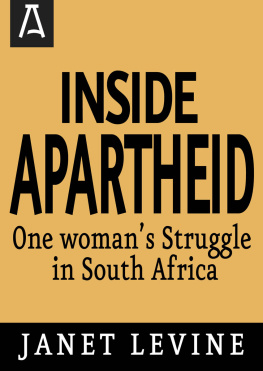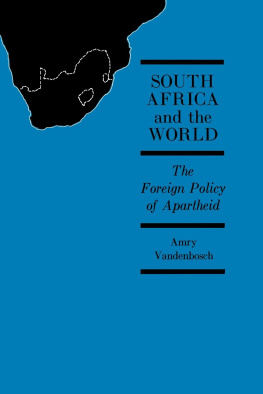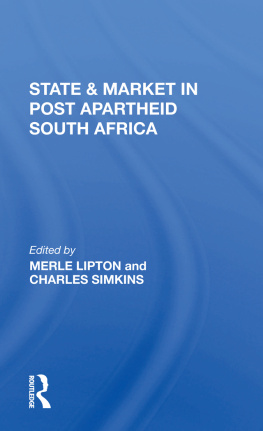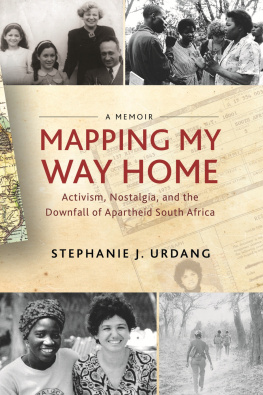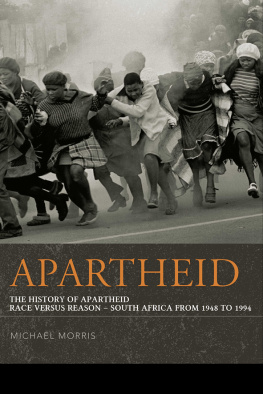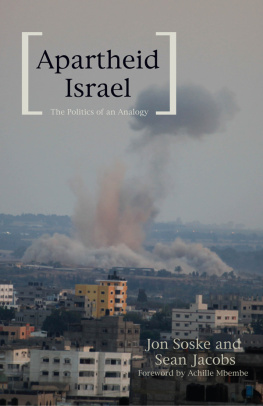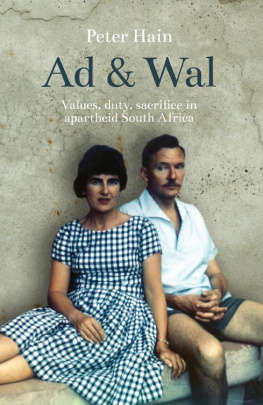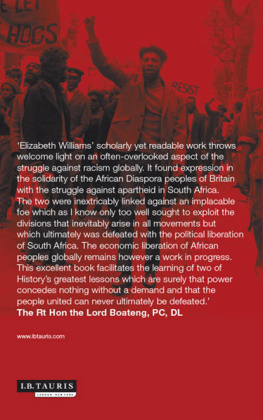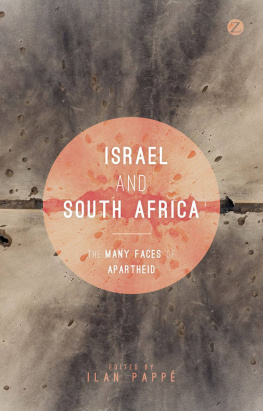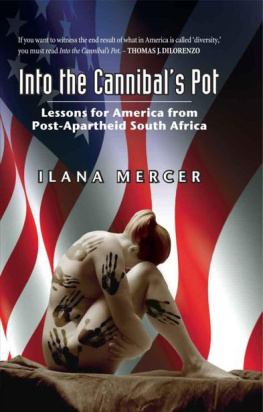WOMEN, ACTIVISM AND APARTHEID SOUTH AFRICA
WOMEN, ACTIVISM AND APARTHEID SOUTH AFRICA: USING PLAY TEXTS TO DOCUMENT THE HERSTORY OF SOUTH AFRICA
BY
BEV ORTON
University of Hull, UK
United Kingdom North America Japan India Malaysia China
Emerald Publishing Limited
Howard House, Wagon Lane, Bingley BD16 1WA, UK
First edition 2018
Copyright 2018 Bev Orton. Published under exclusive licence by Emerald Publishing Limited.
Reprints and permission service
Contact:
No part of this book may be reproduced, stored in a retrieval system, transmitted in any form or by any means electronic, mechanical, photocopying, recording or otherwise without either the prior written permission of the publisher or a licence permitting restricted copying issued in the UK by The Copyright Licensing Agency and in the USA by The Copyright Clearance Center. Any opinions expressed in the chapters are those of the authors. Whilst Emerald makes every effort to ensure the quality and accuracy of its content, Emerald makes no representation implied or otherwise, as to the chapters suitability and application and disclaims any warranties, express or implied, to their use.
British Library Cataloguing in Publication Data
A catalogue record for this book is available from the British Library
ISBN: 978-1-78754-526-7 (Print)
ISBN: 978-1-78754-525-0 (Online)
ISBN: 978-1-78754-716-2 (Epub)
Acknowledgements
I would like to thank Fatima Dike, Phyllis Klotz, Vanessa Cooke and Professor Gay Morris for their support towards my research; Peter Orton for proofreading; and all those who contributed in some way or another. Thank you.
Contents
Preface
This work is not an analysis of theatre it is more than that. It is an insightful perspective of how women have been marginalised by patriarchy, politics, economics, social conditions and customs that, in spite of these restrictive and oppressive interventions into their lives, women have been at the forefront in the struggle for racial equality and political freedom. As a feminist researcher, I have emailed each woman interviewed in my research a copy for their consideration and approval.
I was very fortunate to spend time at the Space Theatre and the start of the Market Theatre working with Barney Simon and Vanessa Cooke. At the University of Cape Town, I worked with Professor Morris on the first production she directed The Prime of Miss Jean Brodie.
I wrote and directed a series for South African Broadcasting Company (SABC) television which was filmed in Soweto and spent a wonderful time with the cast and crew, especially the two young lead actresses. I worked on various productions for television which took me to locations in Port Elizabeth, Cape Town and Johannesburg. I also worked with SABCTV2 staff on Deaf Story which won an Astera Award.
Presently, I lecture in Criminology, Gender, Restorative Justice, Visual Sociology and Equality and Diversity at the University of Hull. I am also an Associate Lecturer at the Open University. I am now part of a funding project that is researching the decriminalisation of sex workers in South Africa. For this project we will be starting a theatre group and be presenting many productions, I hope. I look forward to working in South Africa again and linking up with friends and colleagues and to be part of the activist group working strategically to lessen the reign of patriarchy.
Introduction
This work is not an analysis of theatre it is more than that. It is an insightful perspective of how women have been marginalised by patriarchy, politics, economics, social conditions and customs. That in spite of these restrictive and oppressive interventions into their lives, women have been at the forefront in the struggle for racial equality and political freedom.
When I began my research, I was unsure of the final focus, but I had a strong desire to intervene into the thoughts and debates about South African womens experiences of apartheid and their role in bringing about political change in South Africa. To research womens experiences of apartheid South Africa, I am using five play texts as case studies. All five play texts have important social and political functions. The play text is uniquely positioned in relation to memory and history as theatre provides the audience with a way of re-remembering and a way of piecing together the social and historical contexts in which the play text was written and performed, respectively. Playwriting is a way of structuring memory for an audience. Reading the playwrights words is a way of remembering and that includes two important moments the moment when it was written and the moment when it was performed.
In South African history, there is a tendency to overlook womens contribution to political change, political activism and political contributions. Zungu, Manqele, de Vries, Molefe, and Hadebe (2014, p. 2) of the Oral History Unit of the Department of Arts and Culture stated that history is told not as it was but as men saw it and as a result Women have largely been absent from the telling of our history, despite their vital contribution made in the struggle for freedom (p. 2). Their contribution played an important role in the liberation process, and yet there is a propensity that their contribution will remain under-recorded, their voices silenced and their political activism under-recognised for future generations. This view is reflected in Walkers comment about the absence of a herstorical record of South African womens voices, particularly of black South African womens voices as they simply disappear from our view of the past (Walker, 1999, p. 3). I use herstorical as a term that includes the narratives of women from the past and also as a way to raise issues about womens political marginalisation. Herstory alludes to the distinctions of patriarchal and feminist viewpoints of history whilst defining textual, political, economic and socialy representations and challenging patriarchal history (Andermahr & Pellicer-Ortin, 2013). The herstory of African women is one of sexualised forms of political violence, which was used by the apartheid government to control women. African women were the ones who suffered the loss of sons, husbands, brothers and fathers, and who had to fend for themselves in the homelands or Bantustans. Yet their suffering is not always recorded, making them the silent victims of war (Merry, 2009, p. 156).
I use the play texts You Strike the Woman, You Strike the Rock (Phyllis Klotz, 1994 in Kani, 1994), Glass House (Fatima Dike, 2002, in Banham, Gibbs, & Osofisan (Eds.) 2002), Born in the RSA (Barney Simon, 1994 in Kani, 1994), Have You Seen Zandile? (Gcina Mhlophe, 1994 in Kani, 1994) and So Whats New? (Fatima Dike, 1998 in Perkins, 1998) to inform the writing of the herstory of women in apartheid South Africa through a feminist lens. Yvonne Banning, in her interview with Goodman, talks about how there has been a distortion of history, how there has been such a disruption of peoples histories that the children these days very often dont know their own histories (Banning, cited in Goodman, 1999, p. 8). By using specific play texts, I provide a feminist lens into re-remembering womens contribution to the dismantling of apartheid in South Africa between 1975 and 1993, a period which reflects events of major political upheaval and change in apartheid South Africa.




